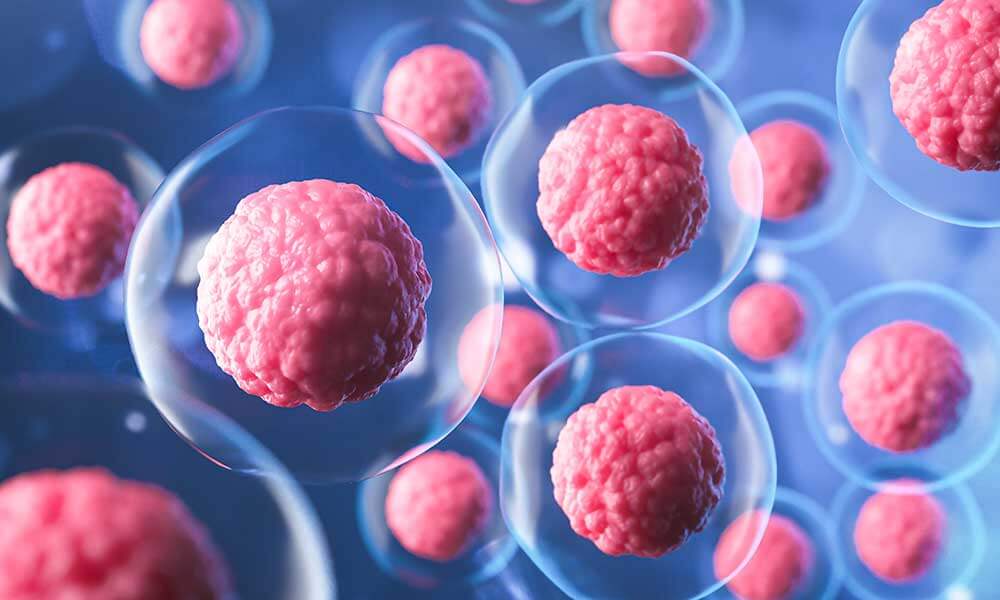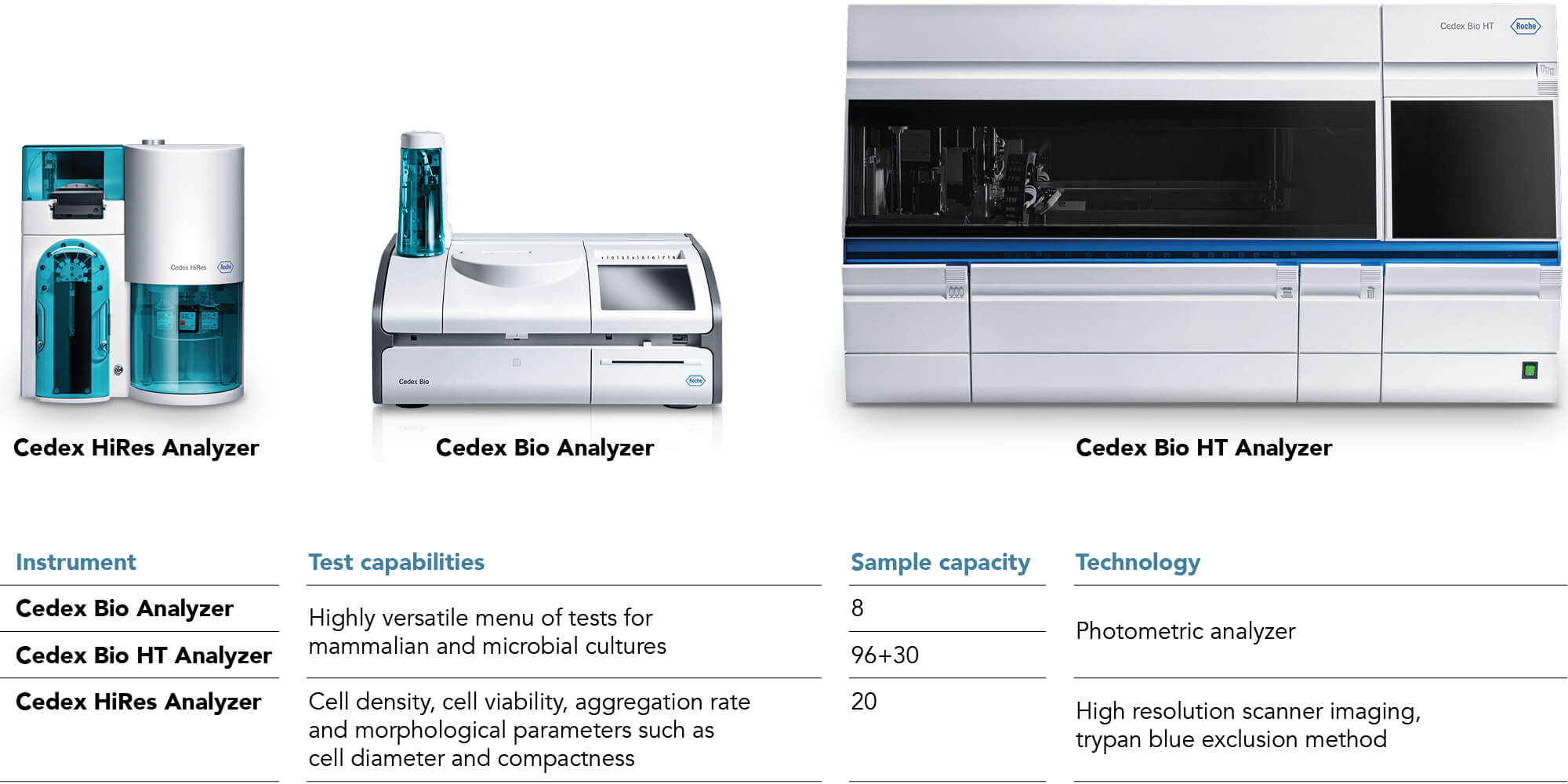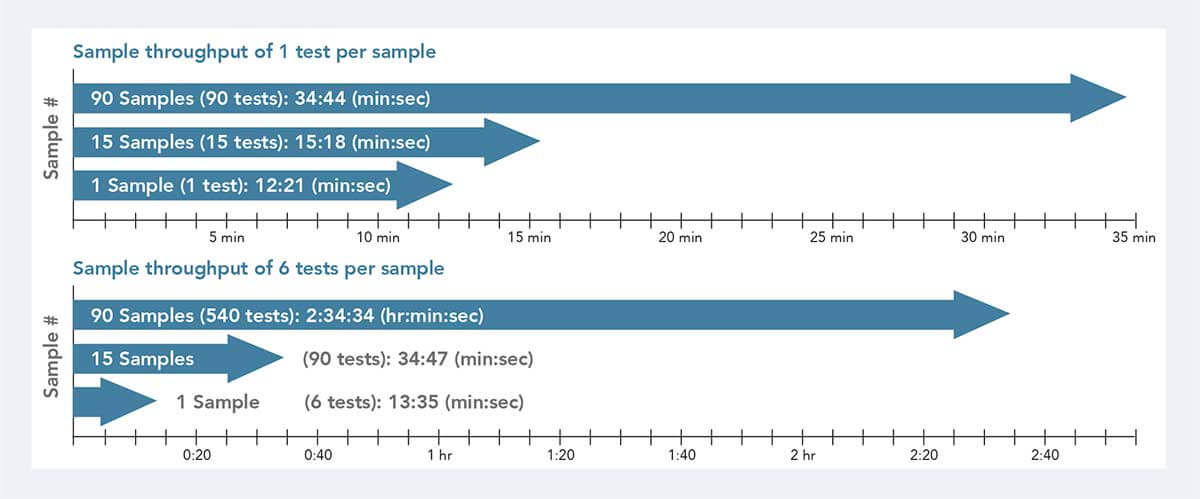For the production of high yield and good quality biotherapeutics it is important to maintain optimal culture conditions throughout your cell culture or fermentation process. Rapid and accurate monitoring of cell viability, morphology and culture metabolites, during your culture process can make all the difference. It enables informed decision making and helps to react in time.
Roche Cedex Analyzers are designed to monitor the complete culture physiology within a bioreactor. Detect subtle variations in nutrients and metabolites or discover changes in cell morphology and growth with this family of analyzers.
With a vast and continually expanding assay menu, the Cedex Analyzer family combines multiple testing functionalities into one powerful platform.
Key features include:
- Reliable photometric technology
- Rapid results
- Suitable for mammalian, bacterial and yeast cultures
- Continuous sample processing
- Consistent performance
- Easy-to-use and minimal user handling required
- Broad menu of assays
- Online integration for automated in-process control
- Compliance with regulatory requirements
One family of analyzers designed to gain a detailed understanding of your bioprocess
Measurements on the Cedex analyzers are done with high precision and data integrity. The results can be translated into predictive models of your bioprocess, allowing you to detect and resolve problems early on in the process. The Cedex analyzer family consists of three different instruments, designed for the measurement of nutrients, metabolites or cell morphology and growth.
The combination of functionalities delivers powerful testing capabilities, resulting in reduced workflow complexity. Cedex analyzers support the Quality by Design (QbD) approach and can be used both in development as well as in GMP manufacturing environments.
Cedex Bio and Cedex Bio HT test panel
The broad range of available assays offers an unmatched testing flexibility and insights to optimize your culture process. Based on industry knowledge, new assays are consecutively added to the portfolio.
The family of assays consists out of substrates and metabolites to monitor the culture process, including health and integrity of the cells. In the same run you can also measure product yield, enabling fast and optimal process development.
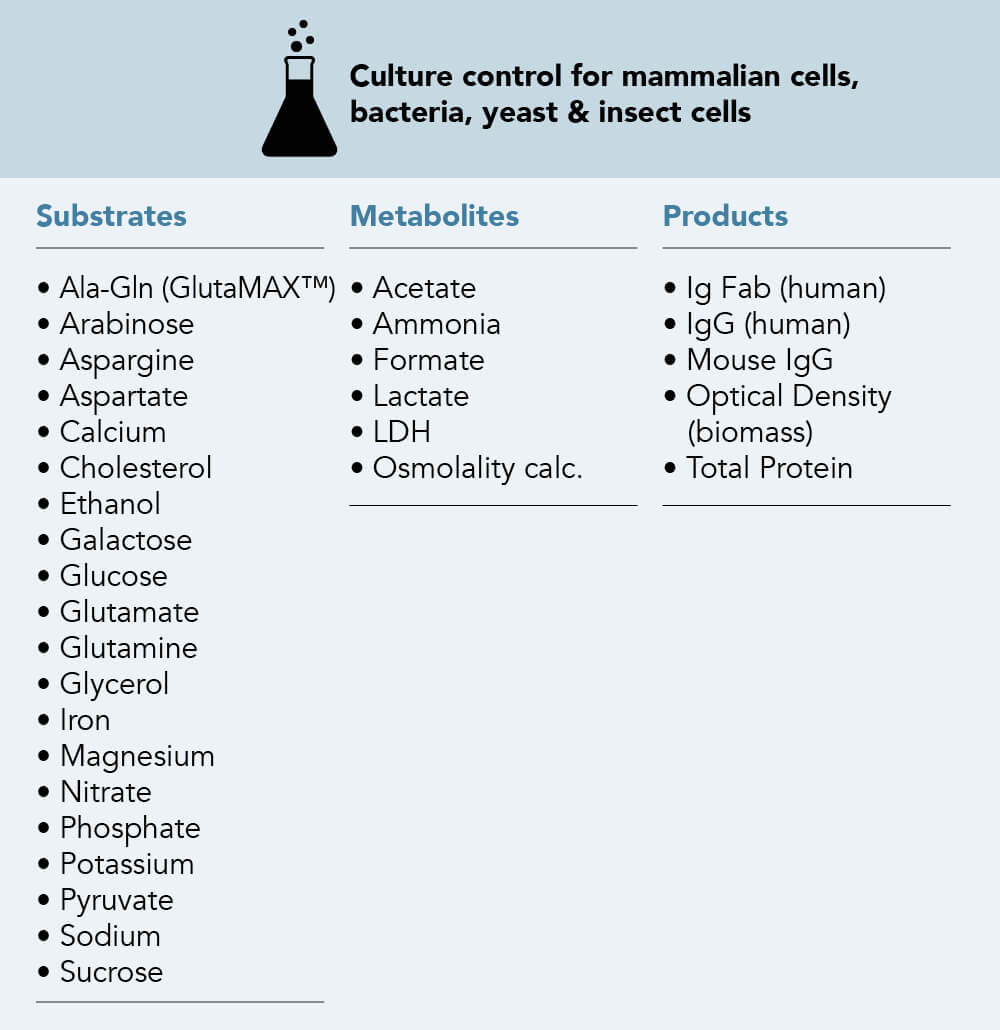
Reliable in-process control
It is important to gain a detailed understanding of your bioprocess and its influencing factors. Small variations can make a big impact. Precise measurements can detect subtle changes in the process, allowing to make informed decisions and increase efficiency of the final production process.
Precision and accuracy in metabolite testing
Only precise and accurate data will assure proper predictability of the actual conditions in a bioreactor. The Cedex Bio and Bio HT analyzers offer significantly higher reproducibility, accuracy and precision compared to membrane-based technology (Figure 1a). Having rapid access to these answers allow you to take action during the culture process and impact yield and quality of the final product (Figure 1b).
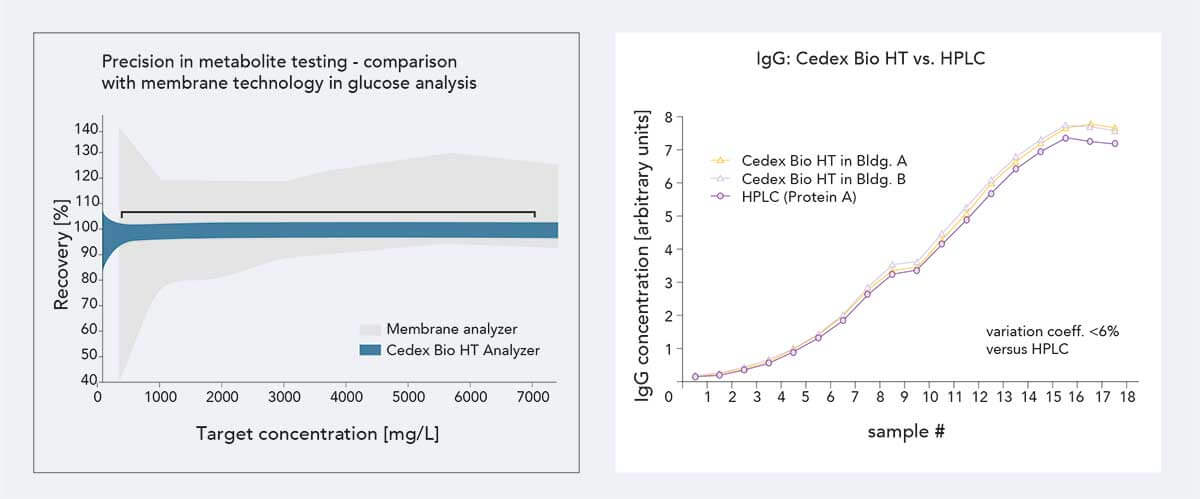
Figure 1a (left): Precision in metabolite testing. Comparison between Cedex Bio HT analyzer and a membrane analyzer used for the measurement of glucose concentration recovery (Roche evaluation data).
Figure 1b (right): IgG concentration measurement comparison of Cedex Bio HT versus HPLC. Over an 18-day production period the IgG concentration in culture medium was monitored using two Cedex Bio HT analyzers (eachin a different location) and by HPLC (Protein A). This data clearly demonstrates the precision and the equivalence of the methods (Roche evaluation data)
High resolution information about your cells
The Cedex HiRes analyzer features high resolution, scanner based imaging. The instrument offers precise measurements and enables deeper insights into the most subtle changes in your cell culture. Objects of less than 2 µm apart can be distinguished and each pixel on an image represents 0.8 µm.
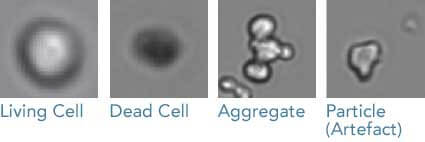
Figure 2. The HiRes analyzer provides precise information about your cell culture. Morphological parameters such as cell diameter and compactness can be measured and provide quantitative information on for example aggregates and artefacts.
Application examples
Interested to discover how Cedex Analyzers can help optimize your bioprocess?
Read more in the below application examples on exosome production and a CHO cell culture process.
Optimizing stem cell exosome production
In this study performed by Eppendorf the production of exosomes, derived from mesenchymal stem cells (MSCs), was optimized for large-scale manufacturing. The application note describes the analysis and monitoring of cell culture metabolites, as well as cell viability and morphology, leading to optimized exosome culture conditions and an efficient production process.
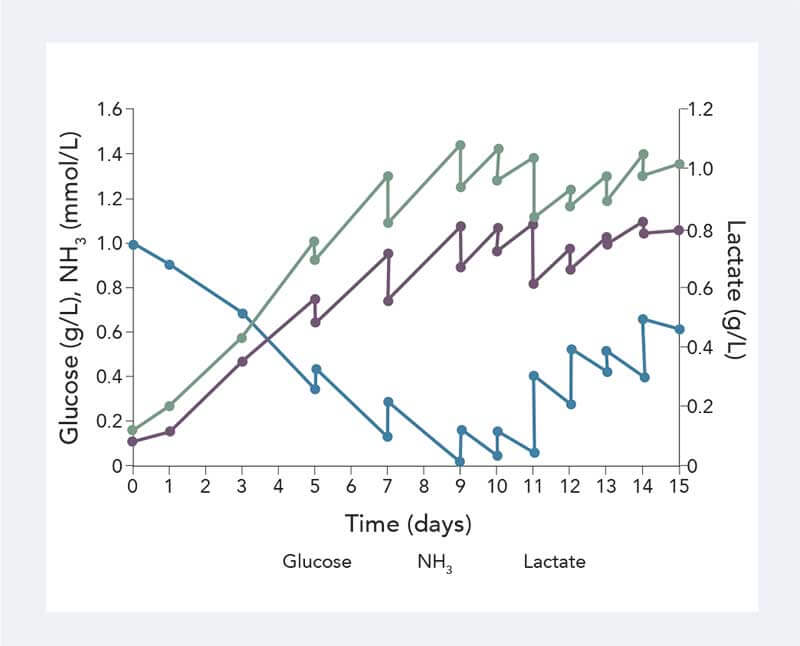
Figure 3. Metabolic profile of MSC cell culture using mesenchymal stem cell basal medium. Glucose, ammonia (NH3) and lactate were measured to monitor the health of the cell culture. Glucose is the primary fuel source in a cell culture and consumption leads to the accumulation of growth. Lactate is byproduct of glycolysis and is strongly produced during the exponential growth phase. High lactate levels are associated with adverse culture performance and reducing lactate accumulation is a key challenge to improve growth and productivity of a cell culture process. Ammonia is also a common waste product in cell cultures. The accumulation of ammonia can lead to decreased recombinant protein production.
Seed train intensification of a CHO cell culture process
Seed train intensification has become a focus in biopharmaceutical manufacturing. Eliminating intermediate culture steps and performing direct inoculation of a production bioreactor can save significant amounts of time and resources in the upstream production process. However, thorough process development needs to take place in order to make sure that yields and efficacy of the process remain unchanged.
Experimental design of this study involved a large analytical testing plan which included the measurement of cell viability and morphological parameters, various metabolites such as glucose and lactate and total IgG at the same time. Download this publication and discover how Cedex analyzers were used to intensify a CHO cell culture process.
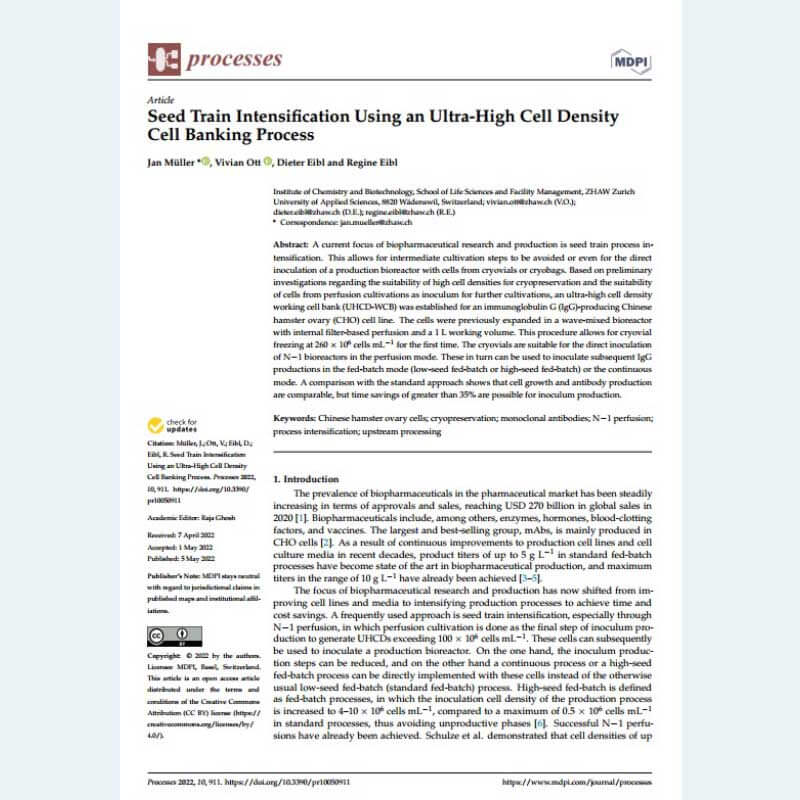
Choose your analyzer
For the determination of substrates, metabolites, minerals, electrolytes and products of your cell culture or fermentation process, the Cedex Bio and Bio HT analyzers are the perfect solution. With >30 different parameters on one platform, you can measure and control your bioprocess in an unparalleled way. The technology is based on enzymatic assays, enabling high sensitivity and robustness, plus optimized measurement ranges which are adapted to the specific requirements of cell culture and fermentation processes.
Download Cedex Bio & Bio HT product brochure
The Cedex HiRes analyzer is specifically designed to obtain information on the cells viability, cell density and morphological aspects of the culture such as aggregates and cell debris.
Cedex Bio analyzers
Two different analyzers have been developed; the Cedex Bio and the Cedex Bio HT. While these analyzers vary in throughput and specifications, you can always rely on identical test results. High correlation between the Cedex Bio and Bio HT has been demonstrated for all available assays.

Cedex Bio analyzer
A small sized, benchtop system with a built-in processing unit. This analyzer is designed for a lower sample throughput. The operating software allows for easy handling of the system. The low maintenance effort and frequency will save time and money.
- Benchtop system offers flexibility to install in any space
- Intuitive operating system
- Low maintenance effort
- Process up to 8 samples and 13 tests in one run (104 data points)
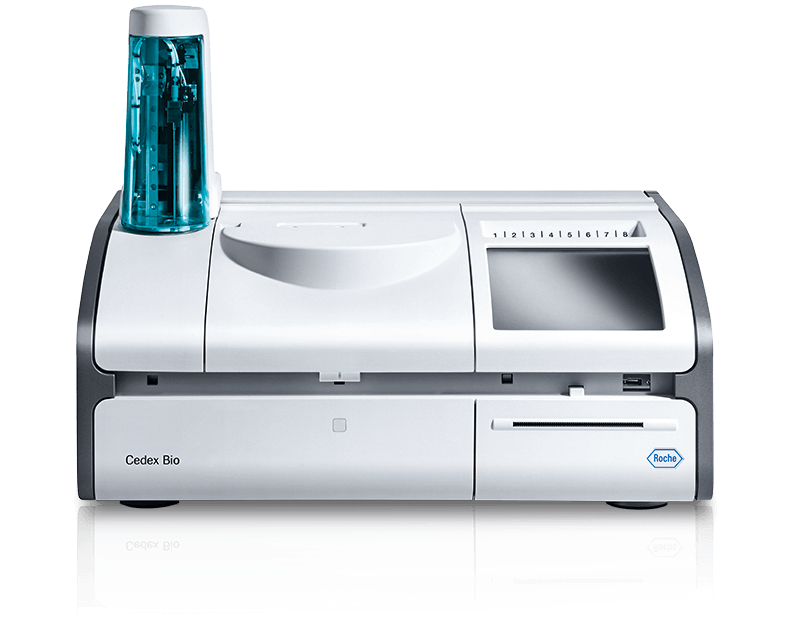
Cedex Bio HT analyzer
The Cedex Bio HT analyzer offers high throughput sample processing and enhanced flexibility with the option to use 96-well plates next to the conventional racks. The automated sample dilution decreases manual input and increases accuracy. The system can be fully integrated with automated systems.
- Numerous samples can be processed simultaneously
- Long time on-board stability of reagents
- Automated sample dilution
- Online integration with automated systems
- Process up to 126 samples and 32 tests in one run (4.032 data points)
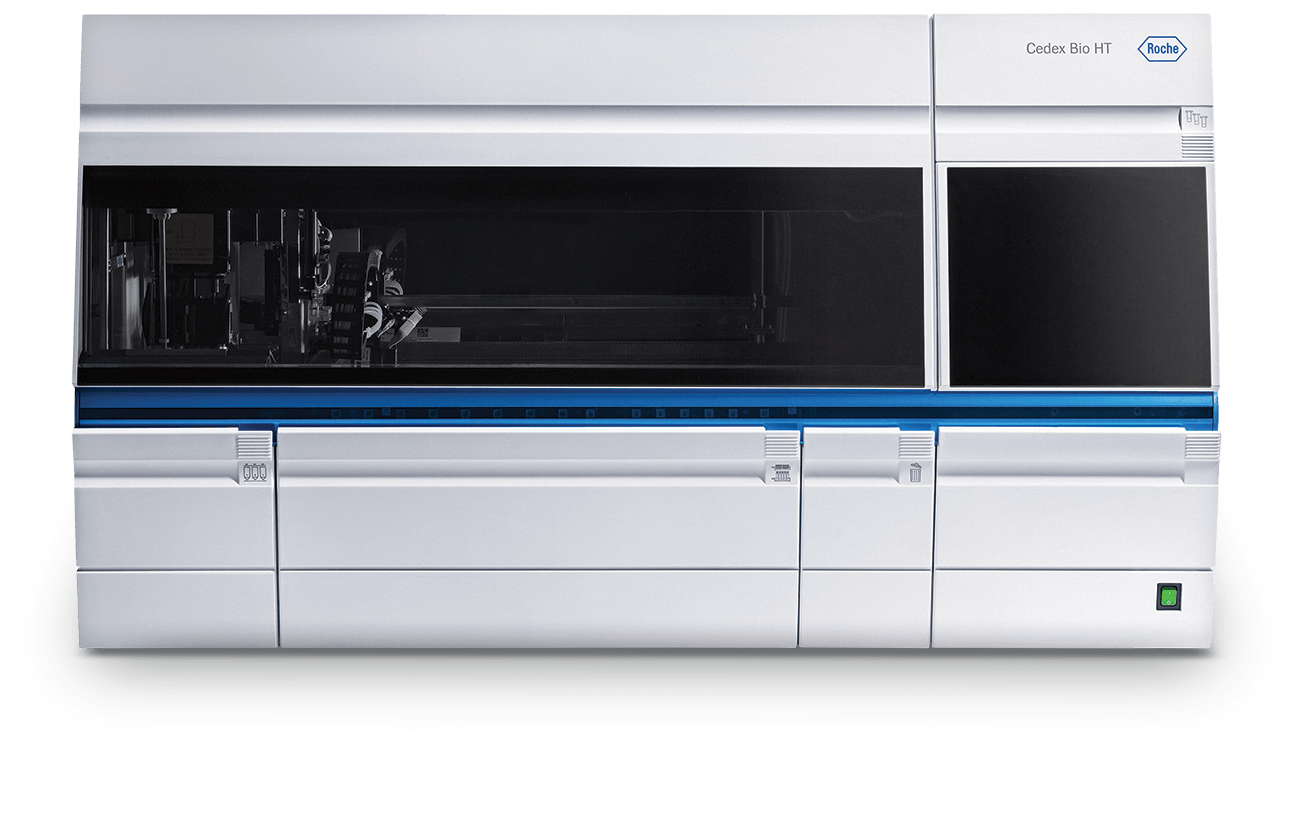
Cedex HiRes analyzer
The HiRes analyzer enables fast, consistent, image-based, high-resolution cell culture analysis, giving you a deeper understanding of even the most subtle changes of your cell culture. Measure concentration, viability, diameter, compactness, morphology of the cells and in addition, cell culture debris.
- High-resolution scanner technology combined with Trypan blue exclusion method
- Integrated multi sampler for single and multiple runs
- Conforms to GMP regulations such as 21 CFR part 11 compliance
- High-speed real-time parameter optimization for specific cell lines
- Various histogram features showing cell size distribution, aggregation and cell morphology
- Automated cleaning and maintenance procedures
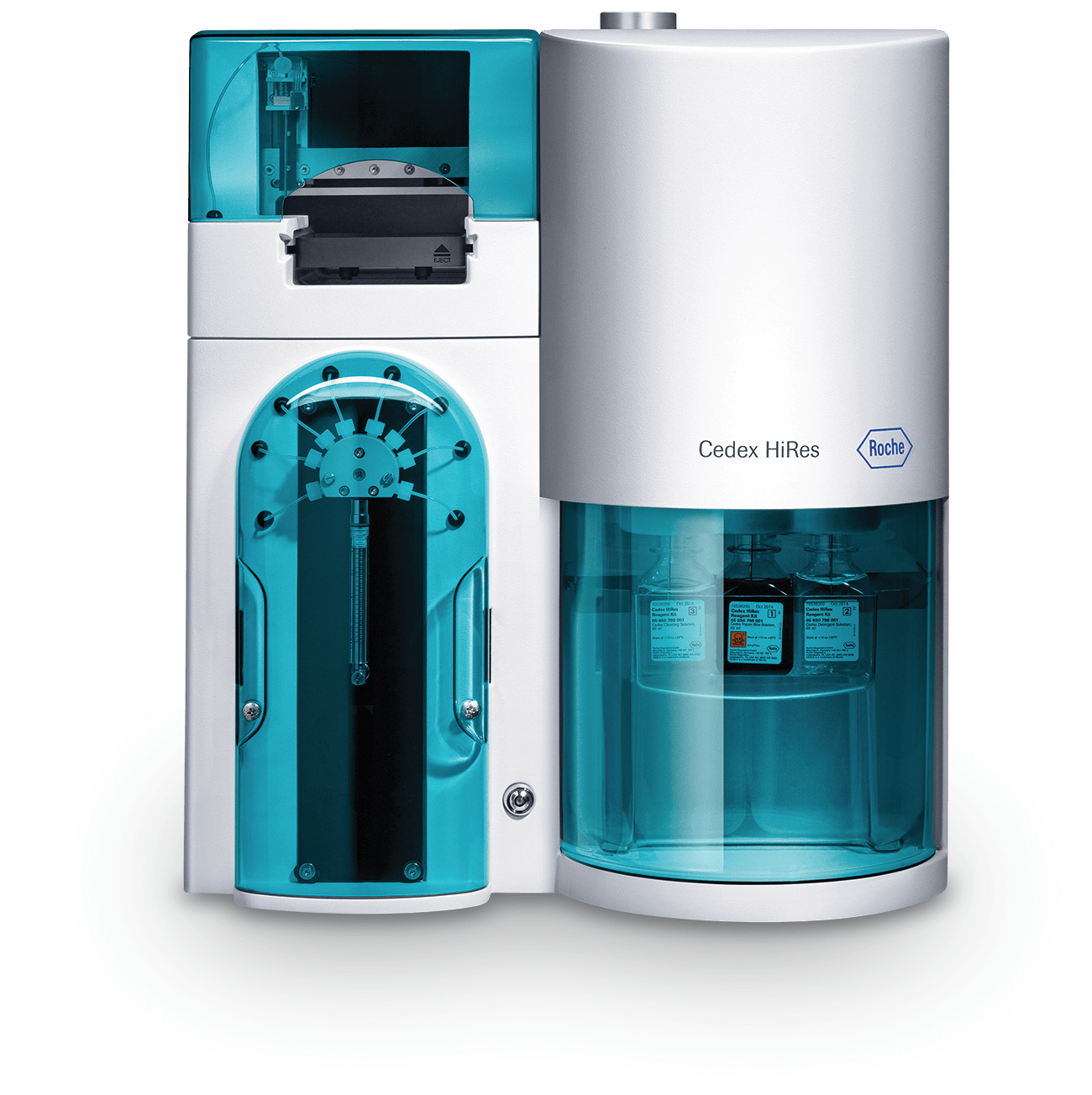
Automation
For efficient upstream development it is important to monitor and control a diversity of process parameters. In addition, a constant monitoring of the production process, allows for intervention whenever changes in the process are discovered. Automated on-line monitoring of the process facilitates process control and increases production efficiency.
The Cedex HiRes and Bio HT analyzers are suitable for connection to automated sampling systems and automated data processing software. This schematic overview shows how automated sampling can be distributed to the analyzers, processing of results and information feedback to the bioreactor.
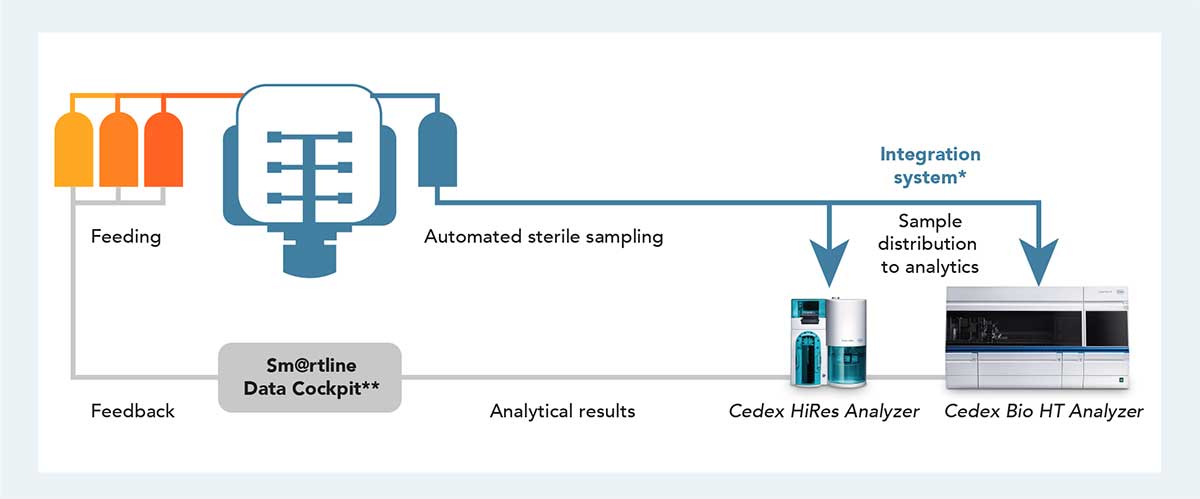
Data processing through Sm@rtLine Data Cockpit (SDC)
SDC is a unique software solution enabling the use of sensors and analyzers for BIO-API processes. The software serves as the bridge between the sensors, the analyzers and the bioreactor control unites. Are you interested in automating data handling? Contact us to find out if SDC is the solution to your requirements.
Automated on-line analysis through the Flownamics Seg-Flow® S3 system
The Flownamics Seg-Flow S3 is the new generation of automated sampling and data management. The system is suitable to handle sample automation of 1-8 bioreactors. Coupled with the Cedex Bio HT Bioprocess Analyzer, it provides automated, on-line analytical solutions for advanced bioprocess culture monitoring. The Seg-Flow system acquires and processes the Cedex Bio HT data to provide real-time analysis for multiple parameters and culture systems, and provides feed control options for bioprocess cultures.
For more information on the Seg-Flow system visit the product page
Resources
In this section you will find an overview of all product brochures and technical resources such as application notes, validation guidelines and published articles.
Product brochures
Technical information
- Guidelines for validation: brief guideline for validation of analytical methods for all analyzers. This guideline provides suggestions for the development of methods for validation and analytic data generation during manufacturing of active pharmaceutical ingredients in compliance with GMP specifications.
- Use case: Scientists at Roche Pharma Research and Early development have adopted an automated analytical approach for process development to optimize the production of therapeutic biological molecules.
Application examples
- Application note: Parallel fed-batch CHO culture
- Application note: Stem cell exosome production
- Publication: Seed train intensification using an ultra-high cell density cell banking process (Processes 2022)
Automation
- Application note: Glucose monitoring and control using Numera®, Lucullus PIMS and Cedex® Bio HT analyzer
- Application note: Automated on-line cell culture monitoring using Numera® and the Cedex® HiRes analyzer
- Article: Automated collection and analysis of bioreactor samples to enable quality by design initiatives
- Publication: Automated bioprocess feedback operation in a high-throughput facility via the integration of a mobile robotic lab assistant (Frontiers 2022)

